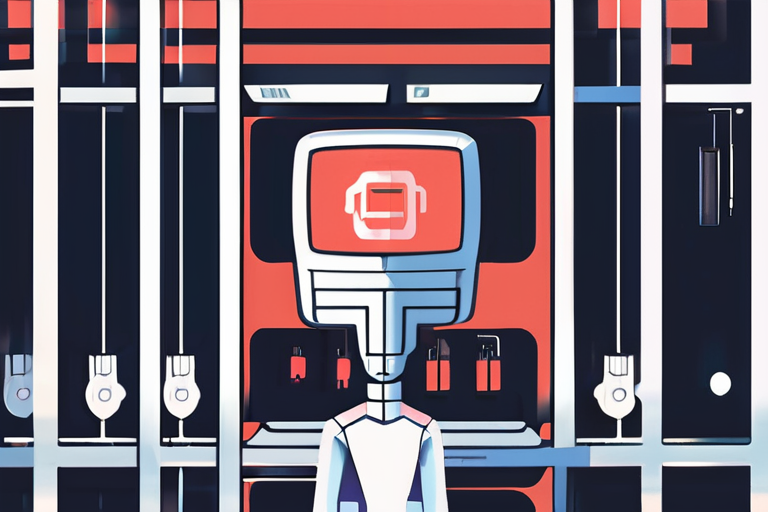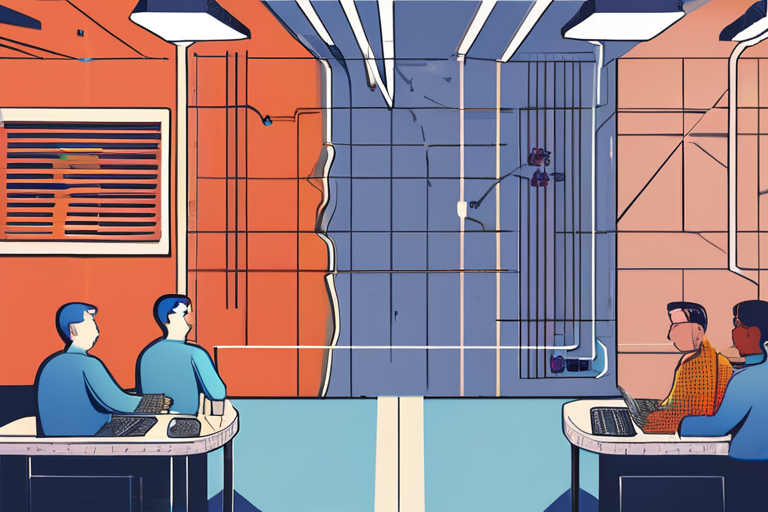Tim Berners-Lee Urges New Open-Source Interoperable Data Standard to Protect Against AI
In a recent article published in the Guardian, Sir Tim Berners-Lee, inventor of the World Wide Web, has called for a new open-source interoperable data standard to protect users' personal data from being exploited by large platforms and algorithms. The proposal, which builds on his existing work at MIT, aims to give individuals control over their own data and prevent its misuse.
According to Berners-Lee, "Somewhere between my original vision for web 1.0 and the rise of social media as part of web 2.0, we took the wrong path." He argues that the current state of the web is not in line with his original intention of creating a free and open platform. Instead, large platforms are harvesting users' private data to share with commercial brokers or repressive governments.
"We see ubiquitous algorithms that are addictive by design and damaging to our teenagers' mental health," Berners-Lee said. "Trading personal data for use certainly does not fit with my vision for a free web." He emphasized that individuals have become the product, rather than the customers, on many platforms.
Berners-Lee's solution is an open-source interoperable standard called Solid, which he and his team developed at MIT over a decade ago. Solid allows apps to request users' data only when necessary, giving individuals control over their own information. "Apps running on Solid don't implicitly own your data," Berners-Lee explained. "They have to request it from you and you choose whether to agree or not."
The concept of Solid is based on the idea that users should be able to manage their own data, rather than relying on third-party platforms to do so. This approach has implications for society as a whole, particularly in terms of data protection and user autonomy.
Background and Context
Berners-Lee's proposal builds on his existing work at MIT, where he developed the Solid standard over a decade ago. The standard is designed to be open-source and interoperable, allowing different apps and platforms to communicate with each other seamlessly.
The rise of social media and large platforms has led to concerns about data protection and user autonomy. Many users are unaware that their personal data is being harvested and sold to third-party companies. Berners-Lee's proposal aims to address these concerns by giving individuals control over their own data.
Additional Perspectives
Dr. Helen Nissenbaum, a professor of computer science at New York University, praised Berners-Lee's proposal as "a crucial step towards protecting users' personal data." She emphasized that the current state of the web is "unacceptable" and that Solid offers a viable solution.
However, not everyone agrees with Berners-Lee's approach. Some experts argue that implementing an open-source interoperable standard would be too complex and time-consuming. Others suggest that it may not address the root causes of data exploitation.
Current Status and Next Developments
Berners-Lee's proposal has sparked a renewed interest in data protection and user autonomy. Several tech companies have already expressed interest in adopting Solid, including Microsoft and Google.
As for next developments, Berners-Lee plans to continue working on Solid and engaging with the tech industry to promote its adoption. He also hopes to raise awareness about the importance of data protection and user autonomy among policymakers and users alike.
In conclusion, Sir Tim Berners-Lee's proposal for a new open-source interoperable data standard is a timely reminder of the need for greater transparency and control over personal data on the web. As the web continues to evolve, it is essential that we prioritize user autonomy and data protection to ensure that the web remains a free and open platform for all.
*Reporting by Tech.*



 Hoppi
Hoppi
 Hoppi
Hoppi
 Hoppi
Hoppi

 Hoppi
Hoppi

 Hoppi
Hoppi

 Hoppi
Hoppi









